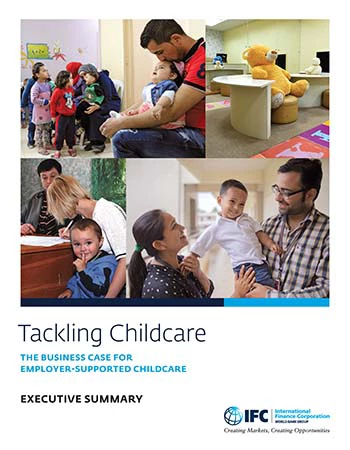A key barrier to female labor force participation is the lack of access to childcare. Recognizing the impact that childcare provision has on women’s employment, countries such as Brazil, India, and Jordan have passed legislation requiring companies to provide childcare options. Even when not driven by regulatory compliance, companies can support childcare and reap business benefits such as lower absenteeism turnover, increased productivity, higher employee engagement.
IFC’s Tackling Childcare: The Business Case for Employer-Supported Childcare report, released on September 27, 2017, discusses how companies can analyze their workforce to identify the type of childcare support they can offer to their employees—from on-site childcare to subsidies—that best suits their needs. The report draws on 10 case studies of companies around the world offering various childcare options and family-friendly policies, highlighting how investments in employer-supported childcare can strengthen the bottom line.
A regulatory framework analysis for each country accompanies the 10 case studies. This analysis was provided by the World Bank Group’s Women, Business and the Law, which measures laws and regulations that affect women’s economic empowerment in 189 economies around the world. WBL’s policy note developed with IFC highlights the regulatory frameworks impacting employer-supported childcare and private, stand-alone childcare centers in 189 economies.
Download
Also available in: Arabic | Bosnian | French






